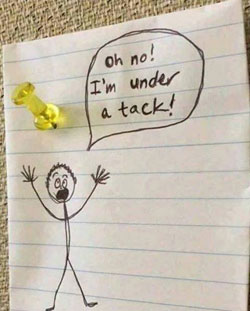HOME | FAMILY | CONDUCTING | SINGING | USU | STEINER | STANFORD | PHOTOS
26th AMENDMENT SIGNING | MEMORIES | YOUTUBE VIDEOS
Phyllis Questions Pronunciation
Phyllis and I both grew up in Kentucky. She was raised in the Eastern part of the state (Catlettsburg - near Ashland) whereas I was from Somerset, in the South Central part of Kentucky only a few miles north of the Tennessee border. We met while attending the University of Kentucky and were both participating in the same choir. There are many differences between the two sections of Kentucky, but one thing we shared was our southern drawl in speaking - mostly a slower speech but with lots of diphthongs not generally heard in other parts of the USA. For example, when Phyllis would call my name, it would sound to others like BEE-uhll Ra-um-zee. Often when she would answer the phone at The Graduate School of Business of Columbia University saying, "Graduate School of Business, Ms. Ramsey speaking" the person on the line would frequently respond (using a fake southern accent) with "Well, hello there, honey. What part of the South are you from?"
Because I was a singer and was studying voice at Juilliard and taking classes with Madeleine Marshall - the chief guru of English singing diction in the world - unbeknownst to me, my southern dialect gradually faded. I never consciously attempted to change my speech patterns nor deny my proud Kentucky background. It was a slow and natural softening of my speech to a more normalized American English. Phyllis, on the other hand, was not studying English diction, nor learning English speech patterns from intensive instruction in classes. It is my belief (perhaps mistakenly) that most folks would not be able to pinpoint my birthplace by listening to me speak, whereas Phyllis has maintained her endearing and charming Southern Belle speech patterns until this day.
There were words that were new to us when we left our Kentucky background and which we were required to learn. For example, we had never heard the word, "quiche." We were learning new foods and had read about quiche Lorraine. It looked terrific and we decided to make it. We called it KWEE-chay. We also didn't know the correct pronunciation of a glass or stainless steel container for hot coffee. We called it a karr-FAY. We were surprised to learn that quiche was pronounced KEEsh, and carafe was pronounced kah-RAFF. (Click here to see a funny, short additional explaination of pronunciation.) These didn't resemble our pronunciation of typical Kentucky words, but we soon adapted them into our everyday language.

In the late 1990s, I was rehearsing Handel's Messiah for a pending performance in northern California. My student conducting assistant, David Stech, was seated next to Phyllis in the audience while the chorus was singing And the Glory of the Lord - the first chorus in Messiah. Phyllis turned to David and asked, "Why is BEE-uhl letting them sing it that way?" David didn't exactly understand the question and asked for clarification. Phyllis then exclaimed that she was confused why the chorus was singing "And all nations shall sit together." She was mistaking "And all nations shall see it together" which, in her southern drawl, sit would sound more like SEE-it.
In Kentucky speech, there are many things which sound different to us natives. The [I] sound (as in the word, it) and the [EH] sound, as in the word met, tend to sound nearly identical. Many do not hear the difference between pen and pin, for example. When I was studying with the great John Wustman, he helped me a great deal to differentiate between kiddle (as in "a kiddle eat ivy too, wouldn't you") and kettle (as in a tea kettle); window instead of winduh, Ohio instead of O-high-uh.
The exact same words have completely different meanings depending on where you grew up. We were visiting with friends in New Jersey, the first time that we had been in their home. They had just painted their wooden shutters and Phyllis was about to reach out and touch the shutter. She was warned, "Don't touch it because it is tacky." Phyllis answered, "I don't think it's tacky I think it's really cute!" To some, tacky means sticky, whereas to others it means crude or lacking in taste. We also learned that piddle (to us southerners) means to engage in an insignificant activity, but to others, it means to urinate (Phyllis says I should write, "pee.") In the south, we piddle all the time! (Since growing much older, we tend to piddle all the time, by both definitions!)
One day I was in the music department office in Utah and overheard the secretary, Nicalee Ballard, speaking on the phone to someone in the South. She muted the phone and said, "Dr. Ramsey, I don't know what she is saying. Can you help me, please? She said they are fixin' to send it. What does that mean?" I explained that they were preparing or getting ready to send something. It never occurred to me that fixin' to wasn't understood by everyone!
English diction has been a major interest of mine. Listening to different regional pronunciations in places where we have lived is fascinating. In Utah, the [AH] vowel and the [AW] vowel are often switched. The frequently quoted example of this is: "Lard, Darthy, what a gargeous arange argandy farmal" ("Lord, Dorothy, what a gorgeous orange organdy formal") or "My brother, Gardon, likes to work in the gorden. Farmerly he was a former." ("My brother, Gordon, likes to work in the garden. Formerly, he was a farmer.")
After years of study, singing in a variety of languages, and once somewhat fluent in German and Italian, I sometimes fail to hear the difference between the vowels [I] and [EH], but I'm working on it - even as I SEE-it here at my computer writing these silly stories.
To see a list of "Southern-isms" click here.

